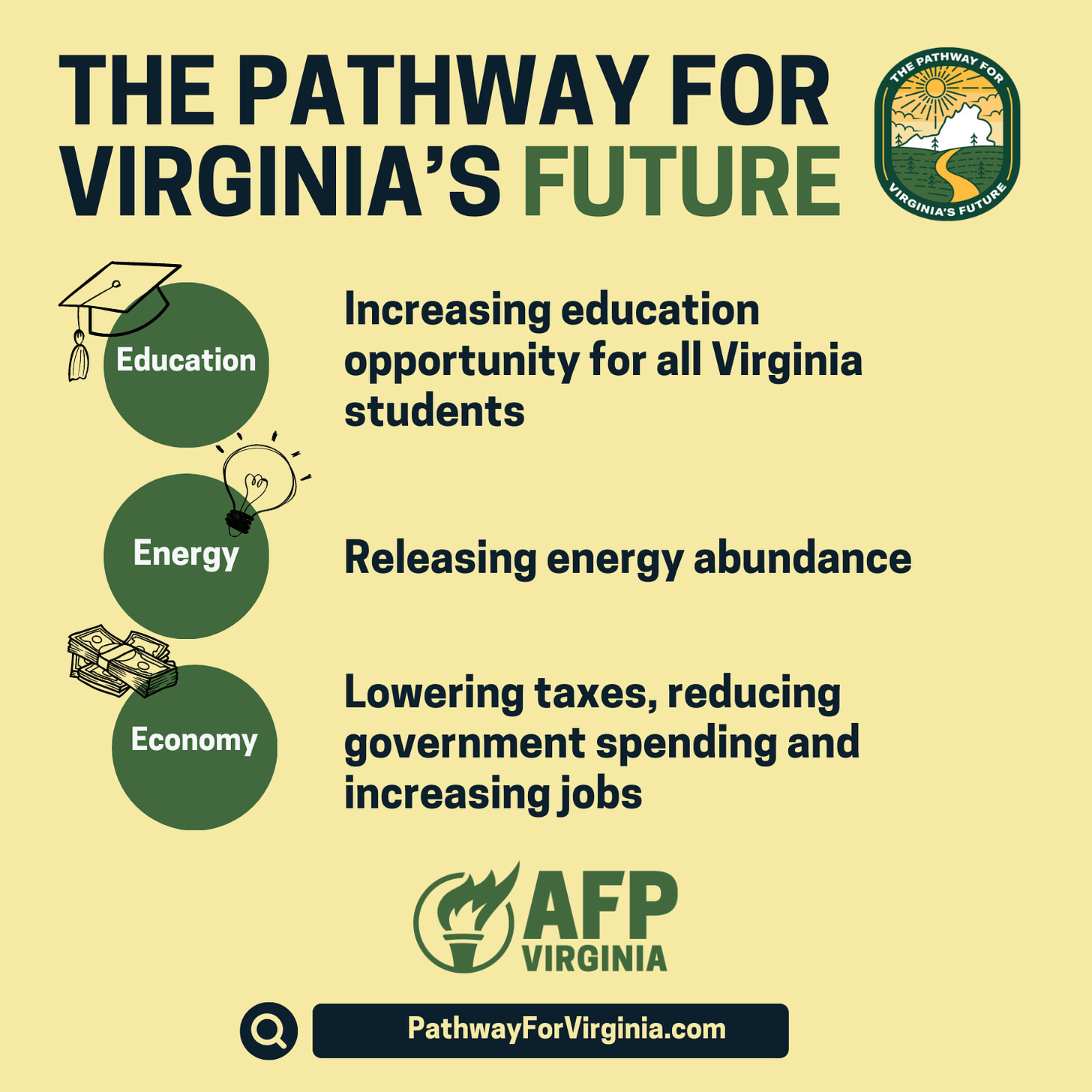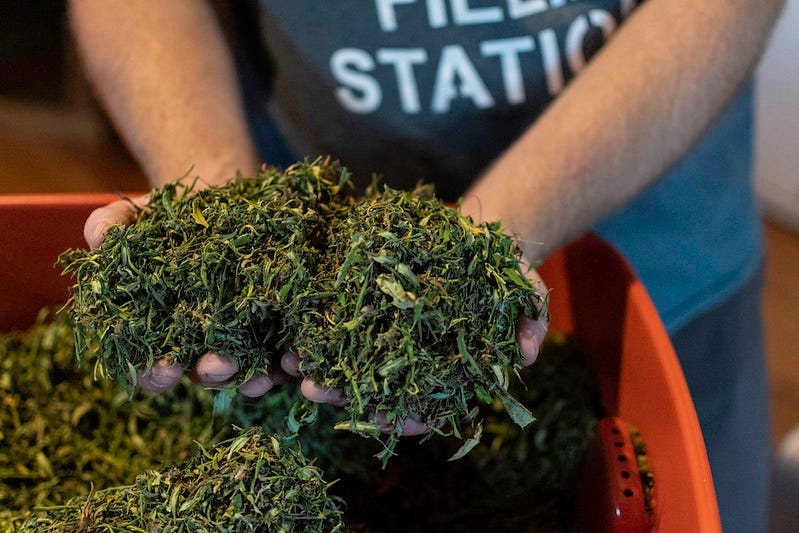Lawmakers swat down bill to increase THC level in industrial hemp
Industrial hemp farmers were disappointed to see a measure killed in the House that would have increased the percentage of THC allowed in hemp grown for fiber and grain cultivation.
This is a daily newsletter covering Virginia politics from top to bottom. Please consider becoming the ultimate political insider by supporting non-partisan, independent news and becoming a paid subscriber to this newsletter today.
Today’s Sponsor: Americans For Prosperity- VA
This is a critical year, and AFP-VA will be working with legislators in order to pass transformative education, energy and economic policy. Virginians are asking for change, they deserve change, and in 2024, AFP-VA will be the premier grassroots organization to deliver change.
Lawmakers swat down bill to increase THC level in industrial hemp
By Michael Chun, Capital News Service
RICHMOND, Va. -- Industrial hemp farmers were disappointed to see a measure killed in the House that would have increased the percentage of THC allowed in hemp grown for fiber and grain cultivation.
Del. Nicholas Freitas, R-Culpeper, introduced House Bill 1485 with Del. Tony Wilt, R-Harrisonburg, as a co-sponsor. Legislators voted 12-10 to table the bill in committee earlier this month.
Industrial hemp is cannabis, but it contains low amounts of THC because of when it is harvested. It cannot be used to get high -- it would be like “smoking a towel to get high,” one hemp farmer testified at the bill’s committee hearing.
The proposed bill covered hemp that produces rope, building materials and animal bedding. It did not apply to products for human consumption, such as edibles.
The bill was intended to distinguish between people growing industrial hemp and people growing other hemp that might be used for consumables, according to Freitas.
Current state law allows industrial hemp products to have 0.3% THC, the federal standard. Farmers want to increase the allowed amount of THC to 1% to better allow for the naturally occurring range of THC present in plants. They also say it would allow for more varieties to be grown in Virginia.
“We’re trying to make it easier for people to engage in hemp farming within the commonwealth,” Freitas said during the Agriculture, Chesapeake and Natural Resources committee meeting.
The bill also proposed to exempt industrial hemp farmers from state licensing requirements, which farmers say can be too restrictive.
Federal law requires hemp growers to undergo background checks, obtain a farm number from the USDA Farm Service Agency and sample each hemp crop no more than 30 days before harvest. A designated state representative may monitor the growing process and can test the crop to see if it meets the criteria.
Farmers harvest the hemp before the plant flowers, or blooms, to keep the THC low, according to Jason Amatucci, president of Virginia Hemp Coalition. Amatucci founded the coalition in 2012 to represent hemp commerce, cultivation and consumption.
Hemp farmers struggle to yield crops with such low THC levels. Crops that yield more THC than the regulated amount could be tested and destroyed, according to state law.
Farmers worry about the potential loss of revenue.
“It’s shackling our industry with red tape and wrapping it around our hands and feet,” Amatucci said.
Committee members had concerns over the implications of increasing the THC percentage, as well as confusion about the difference between hemp grown for its fiber and hemp grown for retail and consumption. Lawmakers asked how the state would verify someone was just growing industrial hemp. There was also confusion over some of the bill’s language and if it could impact the medical cannabis industry.
The American Farm Bureau Federation, a national farming advocacy group, supports a 1% increase. The industry could expand, and generate more jobs and money, Amatucci said. The increase to 1% is also a legislative priority for the National Association of State Departments of Agriculture.
“We are not going to be able to expand our Virginia hemp industry until we can treat it more like corn,” Amatucci said.
The issue is pretty straightforward, and farmers do not understand why they still have challenges from politicians, Amatucci said.
Hemp as a fiber crop has a high yield, producing 250% more fiber than cotton and 600% more fiber than flax, according to academic research published in a national health journal.
There were 266 registered Virginia industrial hemp growers and 116 registered processors in 2023, according to Mike Wallace, director of communications for Virginia’s Department of Agriculture and Consumer Services. There were 662 acres of industrial hemp planted, or 53,674 square feet.
That resulted in 148 harvested acres, or 24,158 square feet.
Growers and processors have registered their industrial hemp in 2024, but it is too early in the year to have accurate data, Wallace stated.
The number is small when compared to the almost 438,000 acres of corn planted in Virginia last year, based on USDA reported data. But it is a number that industrial hemp farmers hope to see change with key policy changes.
“What we want to do is take away all these strict regulations farmers currently have,” Amatucci said. “All these hoops they have to jump through to be able to grow industrial hemp for fiber and grain.”
Additional Sponsor
We have a monumental opportunity to have two professional sports teams & a new entertainment district in northern Virginia that will create economic growth, new shopping & dining options, more housing, and more local entertainment. It's a win-win-win. Learn more: monumentalopportunity.com







